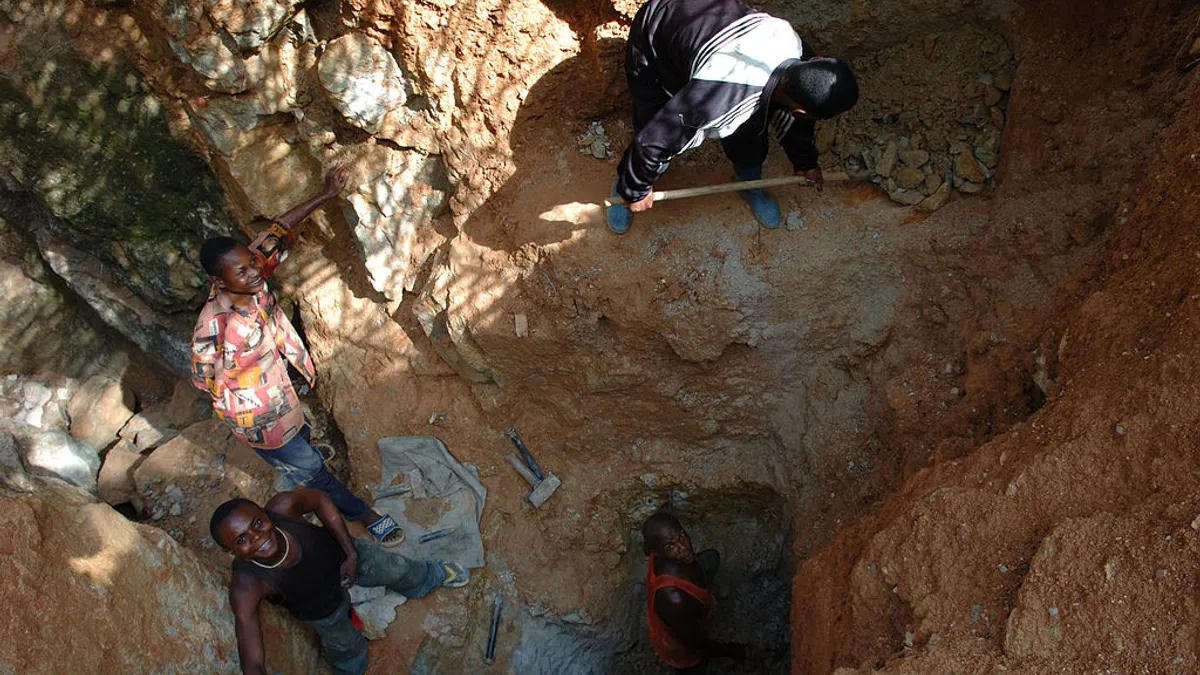Dive Brief:
- Apple's supply chain woes continue as its attempts to abide by ethical sourcing standards falter in the wake of ongoing abuses in the cobalt mineral value chain used downstream to build smartphone lithium batteries, the Washington Post reported last week.
- A recent Sky News report found instances of child labor and hazardous conditions in "artisanal mines" — where cobalt is extracted by hand — used by various of Apple's smelters. Apple turned to these mines last year after a Washington Post investigation revealed similar violations in traditional mines.
- Now the technology giant has instructed its smelters to stop purchasing from artisanal mines, though Zhejiang Huayou Cobalt Company, owner of the mines in question, is investigating the allegations. The company also stated it would begin treating cobalt like a conflict mineral.
Dive Insight:
Sustainability efforts are extremely challenging, especially when product sources come from the other side of the world, where poverty and struggle are typical features of everyday life. Add the complexity of a war-torn region like the Congo and geographic limitations of certain minerals, and it would seem impossible to maintain ethics throughout the entire chain.
Many companies originally contacted by Sky News, including Apple, highlight the ethical dilemma in these situations. When asked if they would sever ties with suppliers, the companies note doing so would further harm communities by cutting off their main source of income.
So, what can be done?
Familiarity with Tier One suppliers is never enough, even when those suppliers are themselves ethical in every way. Like it or not, a good Tier One supplier cannot control the actions of those it hires, even after seemingly thorough investigation. This is particularly challenging in regions where mines are controlled by militias engaged in conflict with each other, forcing purchasers to prefer not asking where the minerals come from.
This culture of silence throughout the chain has long financed militias in the Congo with U.S. dollars. For that reason, Section 1502 of the Dodd-Frank Wall Street Reform and Consumer Protection Act of 2010 requires U.S. companies to track and report the source of their minerals, beginning in 2014. In other words, the U.S. requires due diligence, which at minimum makes companies aware of their sourcing practices and ideally would help combat this culture of silence.
In addition, the process has instilled a culture of mineral tracking among U.S. companies, which some would argue is a large step up from not knowing at all. Apple's decision to treat cobalt as a conflict mineral, although not required to do so by law, is a case in point.
That said, ethical sourcing could still be greatly improved through the employment of systems and processes capable of tracking as many suppliers as possible. Digging below a supplier's surface is required of all companies seeking sustainable supply chains. Although this may seem like an impossible task, technology can now assist in the form of connected networks of information. When a source is determined to be reliable, it can receive a positive rating, which will result in further referrals. When a source is deemed suspect, a network of shared users can avoid it.
Companies that strive to be good stewards of the environment and its people should not have to work alone. Building networks of like-minded organizations that can support their efforts is a good method of rewarding or punishing a potential supplier. Dodd Frank may have been the start of it all for conflict minerals, but even if the rule changes, business trends suggest it is likely not the end of due diligence reporting.












